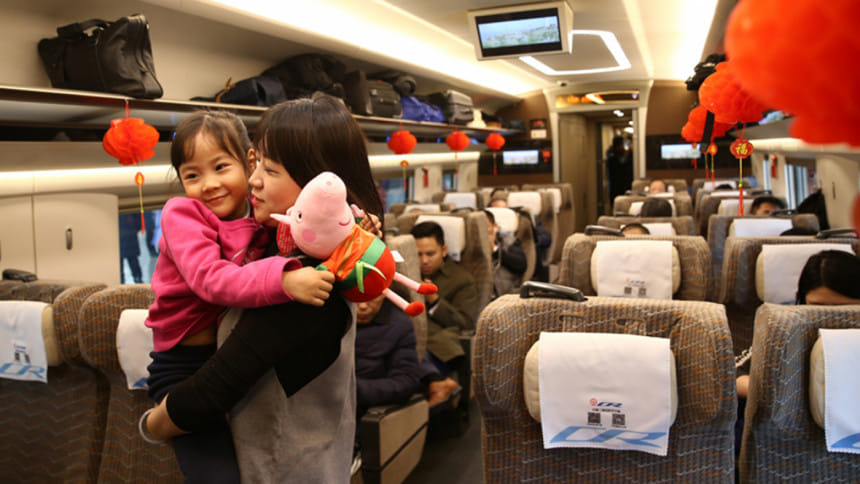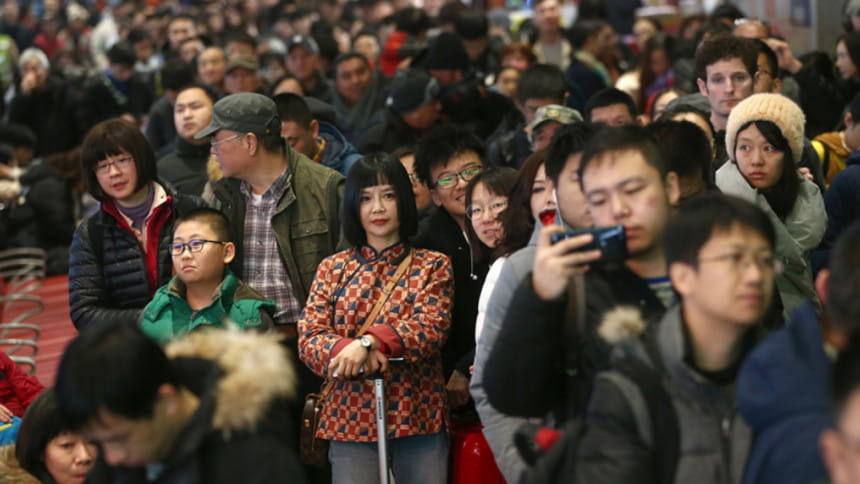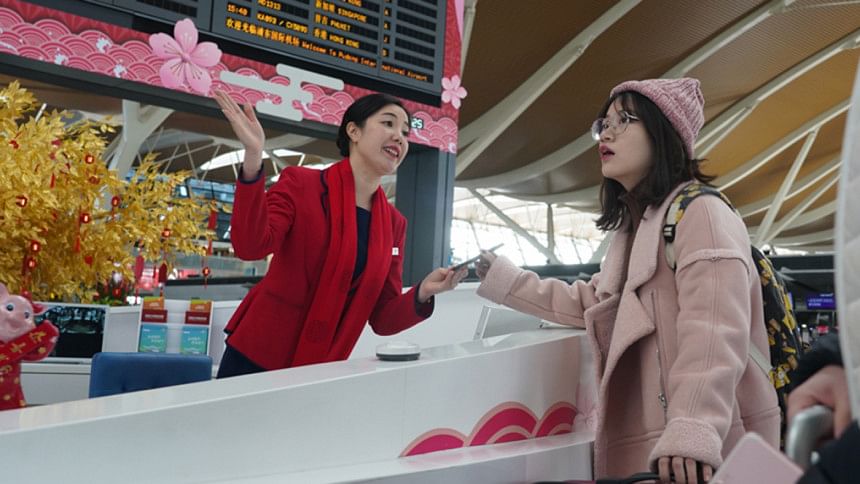Planet's top mass travel frenzy begins in China

The world's largest annual human migration-the Spring Festival travel rush-kicked off on Monday in China, with nearly 3 billion trips expected to be made in the 40 days from January 21 to March 1.
On the first day of the rush, railway departments across the country handled an estimated 9 million train trips, according to China Railway Corp, the national railway operator.
In Beijing, some 402,000 train trips were estimated to have been made via the city's three railway stations on Monday, a year-on-year increase of 8.9 percent, according to China Railway Beijing Group Co.

New technologies were introduced this year to increase efficiency during the travel rush. In Guangdong province, some railway stations pioneered ticketless travel.
Starting Monday, passengers could simply swipe their phones to board the intercity high-speed railway connecting the provincial capital of Guangzhou with the nearby city of Shenzhen.
Huang Xiaozhong, deputy chief of Guangzhou East Railway Station, said passengers can register to pay for travel via Alipay, the payment platform of internet giant Alibaba, and are issued QR codes valid for three hours.

"The QR payment only takes a few minutes, compared with 20 to 30 minutes for passengers to purchase, pick up tickets and enter the station in the traditional way," said Wang Lihui, who is in charge of the station's ticket sales office.
Wang said the new payment method reduces crowding in front of ticket booths.
In Shanghai as well as Jiangsu, Zhejiang and Anhui provinces, 464 ticket checking machines in railway and bus terminals allow swift passage using facial recognition technology.
Some 73 million flights are expected to be made over the holiday period, a year-on-year increase of 12 percent, according to the Civil Aviation Administration of China.
Beijing Capital International Airport, the country's busiest, said it expects to process 11.5 million passenger trips during the travel rush, a year-on-year increase of 4.4 percent.
In Shanghai, the city's two airports are expected to handle about 13.25 million passenger trips in total.
As the pressure on transportation departments increases, Vice-Premier Liu He visited transportation hubs in the capital on Sunday, including Beijing Railway Station and Beijing Capital International Airport, to inspect preparatory work for the travel rush.
He urged transportation departments to go all out to prepare for "the annual test" and make sure passengers travel safely and smoothly.
Spring Festival-which begins this year on Feb 5, Lunar New Year-is China's most important holiday for family reunions.
Copyright: China Daily/ Asia News Network

 For all latest news, follow The Daily Star's Google News channel.
For all latest news, follow The Daily Star's Google News channel. 



Comments